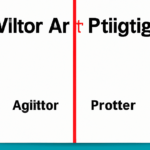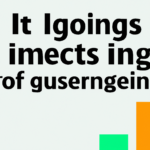Political polarization has become a significant issue in recent years, and one of the primary causes is the rise of social media platforms. With the advent of Facebook, Twitter, and other platforms, people are easily able to connect with like-minded individuals, forming virtual echo chambers where their beliefs are reinforced and opposing viewpoints are ignored. This creates a sense of tribalism, dividing people into “us” versus “them” mentalities. The algorithms used by social media platforms further exacerbate the problem by showing users content that aligns with their existing beliefs, creating a filter bubble that reinforces their biases. As a result, people become less open to considering alternative perspectives, leading to further political polarization.
Table of Contents
(Social media and political polarization in America | 60 Minutes)
The rise of social media platforms has become a major cause of political polarization in recent years. These platforms, such as Facebook, Twitter, and Instagram, have created an environment that fosters echo chambers and amplifies divisive political discourse.
One reason for this polarization is the algorithm-driven nature of social media platforms. These algorithms are designed to show users content that aligns with their existing beliefs and preferences, creating a feedback loop that reinforces their biases. As a result, individuals are exposed to a limited range of viewpoints and are less likely to engage with opposing perspectives.
Another factor contributing to political polarization on social media is the anonymity it provides. Users can easily hide behind screen names and profiles, allowing them to freely express their opinions without consequence. This anonymity leads to a lack of accountability for spreading misinformation or engaging in toxic behavior, further deepening the divide between different political factions.
Furthermore, social media platforms have become breeding grounds for disinformation campaigns and conspiracy theories. The viral nature of these platforms allows false information to spread rapidly and unchecked. This misinformation can manipulate public opinion and shape the political landscape, making it increasingly difficult to have fact-based discussions and find common ground.
Lastly, the immediacy of social media encourages knee-jerk reactions and emotional responses. People often share and react to political content without fully verifying its credibility or considering alternative viewpoints. This emotional-driven discourse further polarizes individuals and creates an environment where civil discussion and understanding become increasingly rare.
In conclusion, social media plays a significant role in political polarization. The algorithm-driven content, anonymity, spread of disinformation, and emotional nature of these platforms all contribute to the increasing divide between different political factions. It is important for individuals to be aware of these factors and actively seek out diverse perspectives to combat the detrimental effects of social media on political discourse.
and online radicalization.
Online radicalization is a phenomenon that has gained significant attention in recent years. It refers to the process through which individuals become radicalized by extremist ideologies and beliefs through online platforms, particularly social media. The internet has become a breeding ground for radicalization due to its accessibility and anonymity.
One of the key causes of online radicalization is the echo chamber effect created by social media algorithms. These algorithms are designed to show users content that aligns with their existing beliefs and interests. As a result, individuals are often exposed to content that reinforces their preconceived notions, leading to the formation of extreme ideologies.
Social media platforms also provide a sense of community for like-minded individuals, further facilitating the process of radicalization. Online communities and forums allow individuals to interact with others who share their radical beliefs, reinforcing their extremist views and creating a sense of belonging.
Another contributing factor to online radicalization is the proliferation of misinformation and conspiracy theories on social media. False and misleading information spreads rapidly on these platforms, often playing on people’s emotions and insecurities. This misinformation can manipulate individuals into adopting extremist ideologies, as they become convinced of a false reality.
The anonymity provided by the internet also plays a significant role in online radicalization. Individuals can hide their true identities online, allowing them to express radical views without fear of consequences. This anonymity fosters a sense of empowerment and emboldens individuals to engage in extremist rhetoric.
The impact of online radicalization extends beyond the digital realm. Radicalized individuals may carry out acts of violence or contribute to the spread of extremism offline. This poses a significant threat to society as a whole, as it can lead to increased social and political tensions.
Addressing online radicalization requires a multi-faceted approach. Social media companies can take responsibility by implementing stricter content moderation policies and algorithms that promote diverse viewpoints. Governments can also play a role by providing education and awareness programs to help individuals critically evaluate the information they consume online.
In conclusion, online radicalization is a complex issue exacerbated by social media platforms. The echo chamber effect, sense of community, proliferation of misinformation, and anonymity all contribute to the radicalization process. Recognizing these causes and taking proactive measures to address them is crucial in mitigating the impact of online radicalization and fostering a more tolerant and inclusive society.
echo chambers
Echo chambers are an inherent aspect of social media platforms that contribute to the causes of political polarization. In these virtual bubbles, individuals are surrounded by like-minded people and exposed to information that aligns with their pre-existing beliefs. The echo chamber effect reinforces and amplifies these beliefs, creating a polarizing and divisive environment.
One of the main causes of echo chambers is the algorithms used by social media platforms. These platforms track users’ preferences and interests to provide personalized content. While this might seem convenient, it often leads to a narrow exposure to information, limiting diverse viewpoints and alternative perspectives. As a result, users are more likely to encounter content that confirms their own biases and opinions.
Another factor that contributes to the echo chamber effect is social reinforcement. People tend to associate and engage with others who share similar views, forming online communities that reinforce their beliefs. This social validation further strengthens their convictions, making it even more challenging to consider opposing arguments.
The polarization within echo chambers has significant consequences. Firstly, it hampers the exchange of ideas and constructive dialogue. When individuals are only exposed to one-sided viewpoints, they are less likely to engage in meaningful conversations and consider alternative perspectives. This lack of diversity in thoughts and opinions reduces the possibility of finding common ground or developing nuanced solutions to complex problems.
Moreover, echo chambers can amplify extreme ideologies and misinformation. When individuals are continuously exposed to content that aligns with their beliefs, they may become more radicalized and less willing to critically evaluate information. This can contribute to the spread of misinformation, as individuals within echo chambers often share and promote biased or unreliable content without fact-checking.
Overcoming the echo chamber effect requires active effort from both individuals and social media platforms. Users can diversify their online connections, follow accounts with different viewpoints and engage in respectful discussions. By seeking out diverse opinions, individuals can expose themselves to a wider range of information and challenge their own beliefs.
Social media platforms also have a responsibility to address this issue. They can promote algorithmic transparency and provide users with options to customize their content exposure, encouraging exposure to diverse perspectives. Additionally, platforms can take steps to reduce the spread of misinformation and promote fact-checking to ensure the reliability of shared content.
By acknowledging the existence of echo chambers and taking steps to mitigate their impact, we can work towards fostering a more inclusive and open digital space. This would enable diverse perspectives to be heard, encourage constructive dialogue, and ultimately contribute to bridging the divides caused by polarizing political views on social media.
filter bubbles
Filter bubbles are a phenomenon that is directly linked to the rise of social media platforms, exacerbating the issue of political polarization. In the digital age, individuals are increasingly consuming news and information that aligns with their preexisting beliefs and values. This echo chamber effect is the result of algorithms and personalized recommendations that tailor content specifically to each user’s preferences.
One of the main drivers behind filter bubbles is the algorithmic curation of social media feeds. These algorithms analyze user data and behavior to determine what content is most likely to engage and retain individual users. As a result, users are presented with a steady stream of information that reinforces their existing beliefs, preferences, and ideologies. This process creates a narrow and distorted reality, sheltering users from diverse perspectives and alternate viewpoints.
Filter bubbles also thrive because of the human tendency to seek out confirmation bias. People are naturally drawn to information that confirms their beliefs and are more likely to disregard or reject information that challenges their preconceived notions. Social media platforms capitalize on this cognitive bias by providing users with content that aligns with their worldview, further reinforcing their political beliefs and widening the divide between ideological factions.
The consequences of filter bubbles are far-reaching. First, they limit exposure to diverse viewpoints and stifle critical thinking. Without access to contrasting perspectives, individuals become less likely to engage in meaningful discussions or challenge their own assumptions. This lack of intellectual diversity only serves to deepen existing divisions and hinder solutions to pressing social and political issues.
Secondly, filter bubbles contribute to the erosion of trust in media and information sources. When individuals only consume content that confirms their biases, they become suspicious of viewpoints that differ from their own. This not only fosters a climate of suspicion and polarization but also undermines the democratic process itself.
To address the problem of filter bubbles, both individuals and technology companies must take action. Users can actively seek out diverse sources of information and engage in respectful dialogue with those who hold opposing views. Technology companies, on the other hand, can work to develop algorithms that prioritize diverse content and expose users to a wider range of perspectives.
In conclusion, filter bubbles are a consequence of the personalized algorithms used by social media platforms, exacerbating political polarization. By limiting exposure to diverse viewpoints, filter bubbles hinder critical thinking, erode trust, and deepen societal divisions. However, with conscious efforts from both individuals and technology companies, we can mitigate the impact of filter bubbles and foster a more inclusive and informed digital landscape.
(ACLF 2021 – Does social media really cause political polarisation?)
misinformation
Misinformation plays a significant role in the political polarization exacerbated by social media. With the rise of online platforms, false information spreads rapidly and easily influences public perception. One of the causes of political polarization is the echo chamber effect created by social media algorithms, which prioritize content based on users’ preferences and previous online behavior. As a result, people are exposed to information that aligns with their existing beliefs, reinforcing their opinions and deepening the divide between different ideological groups.
Another factor contributing to misinformation is the ease with which it can be created and shared. The accessibility of social media allows anyone to publish content without any fact-checking or verification processes. This leads to the proliferation of misinformation, as false narratives and conspiracy theories gain traction and widely impact public discourse.
Furthermore, the speed at which information spreads on social media often outpaces the ability to verify its accuracy. Posts and articles can go viral within minutes, reaching millions of users before the truth can catch up. This rapid dissemination of falsehoods makes it challenging to correct misinformation effectively, leaving many people misinformed and reinforcing their biases.
Political polarization also stems from the manipulation of social media platforms by foreign entities and partisan groups. These actors exploit the algorithms and targeted advertising tools to spread divisive content, exacerbating existing divisions and fueling hostility between different political factions. By targeting vulnerable groups and exploiting their fears and frustrations, they can effectively influence public opinion and exacerbate polarization.
Misinformation not only leads to division but also erodes trust in institutions and undermines democratic processes. When people are exposed to false information repeatedly, they may start questioning the credibility of traditional news sources and institutions, leading to a loss of faith in the democratic system. By creating a climate of uncertainty and doubt, misinformation can further deepen political polarization and hinder constructive political dialogue.
In conclusion, misinformation plays a prominent role in the causes of political polarization exacerbated by social media. The echo chamber effect, the ease of creating and sharing false information, the speed of its spread, and the manipulation by external entities all contribute to the widening ideological divide. Addressing this issue requires a collective effort from individuals, social media platforms, and governments to promote fact-checking, digital literacy, and responsible information sharing. Only through these measures can we hope to mitigate the impact of misinformation and foster a more inclusive and informed political discourse.
Social media algorithms
Social media algorithms play a significant role in shaping the causes of political polarization online. These complex algorithms are designed to personalize and curate our social media feeds, determining which content we see and interact with. By doing so, they create echo chambers, reinforcing our existing beliefs and limiting exposure to differing perspectives.
The algorithms operate based on a variety of factors, such as user preferences, previous engagement, and the content’s popularity. They analyze our online behavior, tracking our likes, comments, and shares. By understanding our preferences, the algorithms tailor our feeds to show more of what we already agree with, creating a feedback loop that amplifies our beliefs.
This personalization, while intended to enhance user experience, unintentionally contributes to the polarization of political discourse. By limiting exposure to alternative viewpoints, it becomes easier for users to dismiss or ignore opinions that differ from their own. This reinforcement of biases can lead to an increasingly divided society, as individuals become less likely to engage in civil discourse or consider alternative perspectives.
Moreover, social media algorithms prioritize content that generates high engagement, such as sensationalist or controversial posts. This focus on maximizing user interaction often results in extremist content gaining more prominence. It is not uncommon for misleading or inflammatory information to spread rapidly, fueling political polarization and further dividing communities.
The impact of social media algorithms on political discourse extends beyond individual users. Political parties and interest groups utilize these algorithms to target specific demographics with tailored messages. By capitalizing on the algorithms’ ability to reach like-minded individuals, they can reinforce existing beliefs and create a sense of group identity.
Recognizing the influence of social media algorithms is crucial in addressing the causes of political polarization online. Efforts should be made to promote transparency and accountability in algorithmic decision-making. Users should also be encouraged to diversify their online consumption, seeking out and engaging with differing perspectives.
Ultimately, social media algorithms are powerful tools, shaping the way we consume and engage with content online. While they provide convenience and personalization, their unintended consequence of promoting polarization highlights the need for a more balanced and open online environment. By understanding and addressing the role of algorithms in perpetuating polarization, we can work towards fostering a more inclusive and informed society.
External Links
- How tech platforms fuel U.S. political polarization and what …
- Are Social Media Driving Political Polarization?
- The role of (social) media in political polarization: a systematic review
- Exposure to opposing views on social media can increase political …
- Political Polarization & Media Habits | Pew Research Center









